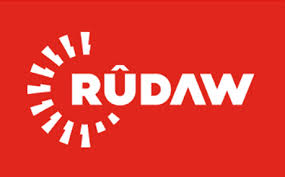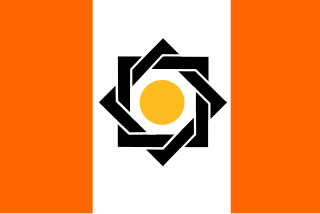Related Research Articles

Kurdish is a language or a group of languages spoken by Kurds in the geo-cultural region of Kurdistan and the Kurdish diaspora. Kurdish constitutes a dialect continuum, belonging to Western Iranian languages in the Indo-European language family. The main three dialects or languages of Kurdish are Northern Kurdish, Central Kurdish, and Southern Kurdish.

Human rights in post-invasion Iraq have been the subject of concerns and controversies since the 2003 U.S. invasion. Concerns have been expressed about conduct by insurgents, the U.S.-led coalition forces and the Iraqi government. The U.S. is investigating several allegations of violations of international and internal standards of conduct in isolated incidents by its own forces and contractors. The UK is also conducting investigations of alleged human rights abuses by its forces. War crime tribunals and criminal prosecution of the numerous crimes by insurgents are likely years away. In late February 2009, the U.S. State Department released a report on the human rights situation in Iraq, looking back on the prior year (2008).

Sulaymaniyah, also spelled as Slemani, is a city in the east of the Kurdistan Region of Iraq, not far from the Iran–Iraq border. It is surrounded by the Azmar, Goizha and Qaiwan Mountains in the northeast, Baranan Mountain in the south and the Tasluja Hills in the west. The city has a semi-arid climate with very hot dry summers and cold wet winters.

Zakho, also spelled Zaxo is a city in the Kurdistan Region of Iraq, at the centre of the eponymous Zakho District of the Dohuk Governorate, located a few kilometers from the Iraq–Turkey border.

The Anfal campaign or the Kurdish genocide was a counterinsurgency operation which was carried out by Ba'athist Iraq from February to September 1988, at the end of the Iran–Iraq War. The campaign targeted rural Kurds because its purpose was to eliminate Kurdish rebel groups and Arabize strategic parts of the Kirkuk Governorate. Although mostly Kurds suffered from it, a significant amount of Iraqi Turkmen, Assyrians, Shabaks, and others were also victims of it.

Kurdistan Region, abbr. KRI, is an autonomous region in Iraq comprising the four Kurdish-majority governorates of Erbil, Sulaymaniyah, Duhok, and Halabja, and bordering Iran, Syria, and Turkey. The Kurdistan Region encompasses most of Iraqi Kurdistan but excludes the disputed territories of Northern Iraq, contested between the Kurdistan Regional Government and the central Iraqi government in Baghdad since 1992 when autonomy was realized. The Kurdistan Region Parliament is situated in Erbil, but the constitution of the Kurdistan Region declares the disputed city of Kirkuk to be the capital of the Kurdistan Region. When the Iraqi Army withdrew from most of the disputed areas in mid-2014 following the Islamic State’s invasion of Iraq, Kurdish Forces entered the areas and held control there until Iraq retook the areas in October 2017.
Kurdish women have traditionally played important roles in Kurdish society and politics. In general, Kurdish women's rights and equality have improved dramatically in the 21st century due to progressive movements within Kurdish society. However, despite the progress, Kurdish and international women's rights organizations still report problems related to gender inequality, forced marriages, honor killings, and in Iraqi Kurdistan, female genital mutilation (FGM).

The Kurdistan Free Life Party, or PJAK, is a Kurdish leftist anti-Islamic Republic of Iran armed militant group. It has waged an intermittent armed struggle since 2004 against the Iranian regime, seeking self-determination through some degree of autonomy for Kurds in Iran.

Dlawer Ala'Aldeen دلاوەر عبدالعزيز علاءالدين, is the Founding President of the Middle East Research Institute, a policy-research institute, based in Arbil, Kurdistan Region of Iraq. He is a former Minister of Higher Education and Scientific Research in the Kurdistan Regional Government (2009-2012) and former professor of Medicine at the University of Nottingham in the UK. His current focus is on policy research in the fields of good governance, rule of law, national security, governance reform and promotion of human rights.
Ahmad Hardi was a prominent Kurdish poet.
Choman Hardi ,(born 1974) is a Kurdish poet, translator and painter.
The mass media in Iraq includes print, radio, television, and online services. Iraq became the first Arab country to broadcast from a TV station, in 1954. As of 2020, more than 100 radio stations and 150 television stations were broadcasting to Iraq in Arabic, English, Kurdish, Turkmen, and Neo-Aramaic.

The Iran–PJAK conflict is an armed conflict between the Islamic Republic of Iran and Kurdish rebels of the Kurdistan Free Life Party (PJAK), which began in 2004. The group has carried out numerous attacks in the Kurdistan Province of Iran and provinces of Western Iran. PJAK is closely affiliated with the militant Kurdistan Workers' Party (PKK), the primary opponent of the Republic of Turkey in the Kurdish–Turkish conflict. PJAK has been designated as a terrorist organization by Iran, Japan, Turkey, and the United States.
Aswat al-Iraq is an independent national news agency in Iraq, established in 2004. Funded by the United Nations Development Program, and with assistance from the Reuters Foundation and Internews, it produces over 60 stories a day in Arabic, some 20 to 25 in English and 15 to 20 in the Sorani dialect of Kurdish. All stories are published on the agency's website. Aswat al-Iraq means 'Voices of Iraq' in English.

The Gorran Movement or just Gorran (Change) is a Kurdish political party in the Kurdistan Region of Iraq. Formerly under the leadership of Omar Said Ali, it was founded in 2009 by Nawshirwan Mustafa. Gorran is the sixth largest party in the Kurdistan Region, having lost almost all of its voters (95%) since its foundation, and is now no longer represented in the Iraqi parliament, Nawshirwan Mustafa's sons Chya and Nma were the main cause of the Gorran Movements political and electoral obliteration.
Hawlati is an independent Kurdish newspaper, published in Sulaymaniyah, Iraqi Kurdistan and London. Tariq Fatih is the owner of the paper.

Human rights in Iraqi Kurdistan refer to the human rights issue in the autonomous area of Kurdistan Region.

Rudaw Media Network, is a media group known for its news channel in Kurdistan Region, Iraq. It publishes in Kurdish Sorani and Kurmanji, English, Arabic and Turkish. Rudaw Media Network also owns a weekly newspaper in the Sorani dialect with a circulation of 3,000, a Kurmanji version published in Europe, a website in Kurdish, English, Arabic and Turkish and a satellite TV station. The network is funded and supported by Rudaw Company and aims to impart news and information about Kurdistan and the Middle East.

Kurdistan Freedom Party is a Kurdish nationalist and separatist militant group of Kurds in Iran, based in northern Iraq.
References
- ↑ "Heroism in name of media freedom honoured at British Press Awards". Press Gazette. 21 March 2008. Archived from the original on 5 March 2009. Retrieved 5 September 2009.
- ↑ "The Question of Kurdistan: Where Will It Lead?". Kurd Net. 7 January 2006. Retrieved 5 September 2009.
- ↑ "Awene: Independent Kurdish weekly mirrors life in Kurdistan, Sulaimaniyah". Voice of America. 8 May 2009. Retrieved 5 September 2009.[ permanent dead link ]
- ↑ "The Kurdistan Region: Future Prospects: UK parliamentary fact-finding visit to the Kurdistan Region in Iraq 9 – 15 February 2008" (PDF). Washington Kurdish Institute. June 2008. Archived from the original (PDF) on 2011-09-27. Retrieved 5 September 2009.
- ↑ "Kurdish journalist wins Gebran Tueni Award". The Kurdish Globe. 19 December 2009. Retrieved 26 March 2013.